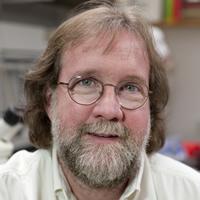
Evolution is the key principle guiding life on Earth, as fundamentally important to biology as quantum theory is to physics. But although it's universally accepted by scientists and firmly established as the bedrock of life science, we are still learning the details of just how evolution works, particularly at the basic genetic level. One approach to understanding evolution compares different organisms to find the common genetic ancestry that governs their developmental processes, thus revealing vital clues to the evolutionary origin and function of those processes. This is a field known as evolutionary developmental biology, or more commonly, "evo-devo." Sean B. Carroll has emerged as the most visible and influential researcher in evo-devo both among his own scientific colleagues and to the public at large.
When Carroll was still an undergraduate in biology at Washington University in St. Louis in the 1970s, evolution was all about fossils: the remains of long-extinct animals and plants. While their stories could be studied on the larger scale, as the revolution in molecular biology took hold, it became possible to read the saga of life in much greater detail, at its most elemental level—and to study how changes on that level ultimately manifest themselves in the full-scale organism. It is upon this synergy between evolution at both its smallest and largest scales that Sean Carroll focused, as he went on to earn his Ph.D. in immunology at Tufts University School of Medicine, then did post-doctoral work at the University of Colorado at Boulder.
Carroll's work bridges the gap between evolution at the molecular level and at the organismal level, synthesizing a new and powerful model from both. He approached the study of evolution by looking at morphology and how body form and variation were influenced by gene interactions and expression during development. He looked at the patterns of the markings of butterfly wings and particularly the wing shapes and spots of the Drosophila fruit fly, noting the genetic mechanisms that determine such variations and their implications for evolution. His work has revealed how changes in gene regulation affect phenotypic expression and thus evolution in general. Although his theories have sometimes been controversial in the evolutionary biology community, that controversy has led not to discord but, in the true tradition of scientific discourse, to more intensive and detailed research and the development of new ideas and investigative avenues. He continues his groundbreaking research as a professor of molecular biology and genetics at the University of Wisconsin at Madison.
Also working as an investigator at the world-famous Howard Hughes Medical Institute, one of Carroll's most important roles is that of communicating science to the public, not just the impact of his own work, but the significance of science to society as a whole. His best-selling popular science books include Endless Forms Most Beautiful: The New Science of Evo-Devo and the Making of the Animal Kingdom (2005) and Remarkable Creatures: Epic Adventures in the Search for the Origin of Species (2009). He is also widely known as a charismatic and effective media advocate for science, scientific literacy, and evolution, and appears regularly on television, radio, and as a public speaker. His many awards reflect the range of his talents as both a scientist and a science writer; not only is he a member of the National Academy of Sciences and a fellow of the American Academy of Arts and Sciences, but he is the recipient of various educational and literary honors, such as the Stephen Jay Gould Prize of the Society for the Study of Evolution and a 2009 finalist for the National Book Award.
But even if he didn't follow in the distinguished footsteps of past scientist-communicators such as Isaac Asimov and Carl Sagan, Sean Carroll would be renowned in any case, as one of the 21st Century's leading figures in evolutionary biology. He is a true Renaissance man of science, at home whether in the laboratory performing cutting-edge research or at a podium expounding to a rapt audience on the wondrous variety and versatility of life on Earth.
Information as of April 2012

